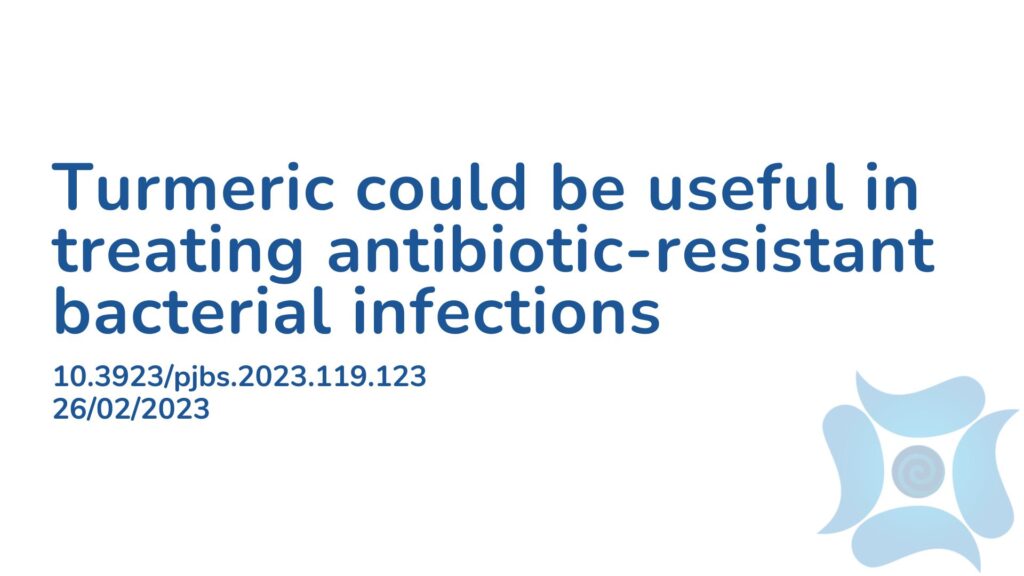Summary:
Curcuma longa L. rhizomes, which is the active compound in turmeric, contains many beneficial compounds that fight tumors, depression, pathogenic bacteria, aging, and diabetes. With the rise of antibiotic-resistant bacteria, finding new compounds that work to fight pathogens is critical. This study looked at how well an ethanol extract from Curcuma longa L. rhizomes can kill bacteria, specifically Proteus mirabilis, Acinetobacter baumannii, and Multidrug-Resistant Klebsiella pneumoniae (MDR-K). Researchers extracted the rhizomes with ethanol and used different methods to test its antibacterial effects. The extract worked best against Proteus mirabilis and MDR-K, showing significant bacteria-killing abilities. However, it did not affect Acinetobacter baumannii. This suggests that Curcuma longa L. rhizome extract could be useful in treating antibiotic-resistant bacterial infections.
Abstract:
Background and Objective: Curcuma longa</i> L. rhizomes are the source of many bioactive compounds such as antitumor, antidepressant, antibacterial, anti-aging and antidiabetic. Due to the growing problem of antibiotic-resistant bacteria, it is necessary to find new sources of antibiotics. This research aimed to investigate the antibacterial activity of ethanolic <i>Curcuma longa</i> L. rhizomes extract against <i>Proteus mirabilis, Acinetobacter baumannii</i> and Multidrug-Resistant <i>Klebsiella pneumoniae</i> (MDR-K). <b>
Materials and Methods:</b> Dry <i>Curcuma longa</i> L. rhizomes were extracted with ethanol. The agar diffusion method was used as the primary screening of antibacterial activity determination. The broth dilution method was used to measure the MIC and MIC of the extract. <b>Results:</b> It presented the largest diameter of the inhibition zone at 0.9 mm against <i>Proteus mirabilis</i>, followed by 0.8 mm against MDR-K. The lowest MIC and MBC values were at 0.048 and 0.39 mg mL<sup>1</sup> against <i>Proteus mirabilis</i>, followed by 0.195 and 6.25 mg mL<sup>1</sup> against MDR-K. The ethanolic <i>Curcuma longa</i> L. rhizomes extract did not affect <i>Acinetobacter baumannii</i>. <b>Conclusion:</b> The new finding of this research was that the ethanolic extract from <i>Curcuma longa</i> L. rhizomes can eliminate <i>Proteus mirabilis</i> and MDR-K that can be applied to treating antibiotic-resistant bacterial infectious diseases in the hospital.
Article Publication Date: 26/02/2023
DOI: 10.3923/pjbs.2023.119.123



